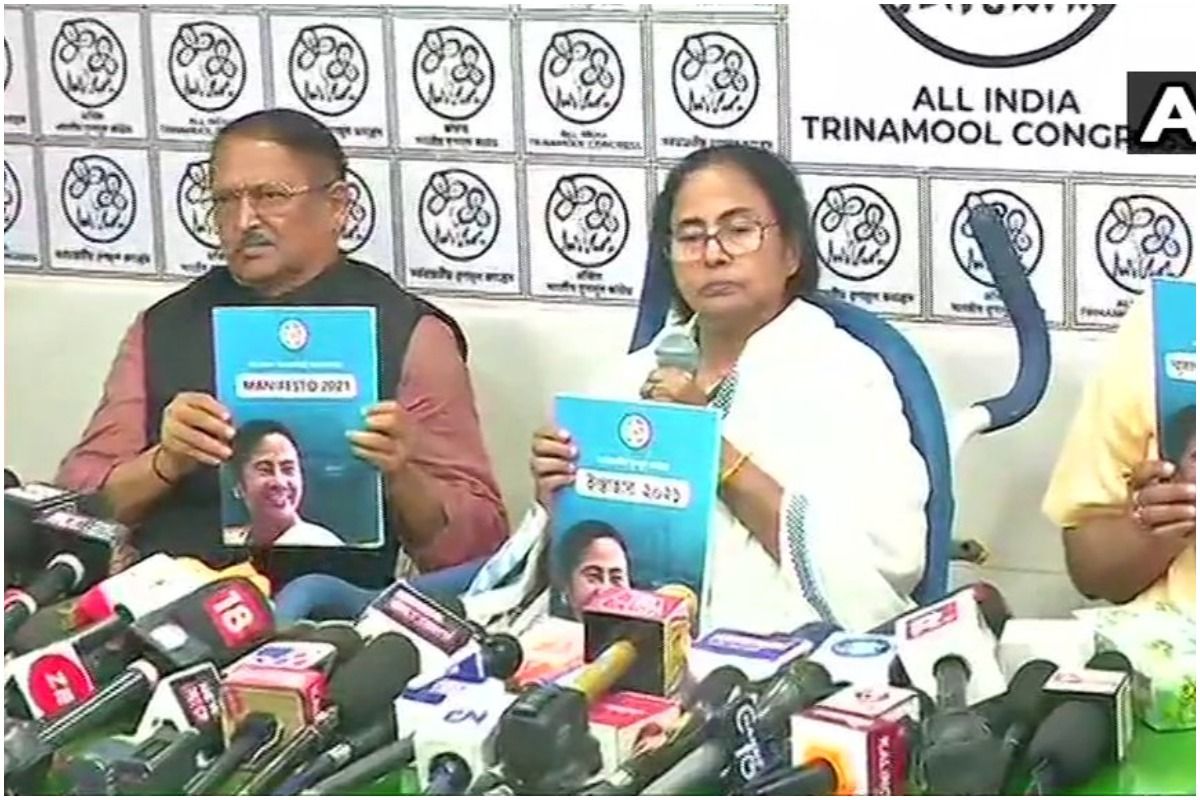Kolkata: Ahead of West Bengal Assembly Elections, Chief Minister Mamata Banerjee on Wednesday released TMC’s election manifesto and promised her government would decrease unemployment and generate 5 lakh employment opportunities in a year. Releasing the manifesto, she said that the farmers in West Bengal will receive Rs 10,000 per acre as grants from government under Krishak Bandhu scheme. Mamata also added that her government will bring credit card of Rs 10 lakh for students for pursuing higher studies and in this only 4 per cent interest will be charged.
Giving further promise, Mama added that her government will ensure minimum annual income of Rs 6,000 and Rs 12,000 for general category and backward community people respectively in West Bengal.
Mamata Banerjee said that over 25 lakh additional houses under Bangla Abaas yojna scheme will be bult for the poor. Moreover, her government will move for OBC status for Mahishya, Tili, Tambul and Saha communities if voted to power this time, she said in the manifesto.
“We will decrease unemployment. 5 lakh job opportunities will be generated in a year. When TMC came to power our revenue was about Rs 25,000 crores, it is now over Rs 75,000 crores. Farmers to receive Rs 10,000 per acre as grants from government under the Krishak Bandhu scheme, up from current Rs 6,000. 25 lakh additional houses under Bangla Abaas yojna scheme. We will move for OBC status for Mahishya, Tili, Tambul and Saha communities,” Mamata Banerjee said after releasing TMC manifesto for upcoming polls in the state.
Saying that she has set examples on various social welfare schemes and won global awards, Mamata Banerjee added that he government has brought down poverty level and enhanced farmer’s income.
“When the TMC came to power our revenue was about Rs 25,000 crores, it is now over Rs 75,000 crores,” Mamata Banerjee added.
The TMC had initially announced it would release its manifesto for the Bengal election on March 9. But it deferred its release a day before the schedule.
West Bengal will go for polling for 294 assembly seats in eight phases between March 27 and April 29. Votes will be counted on May 2.
